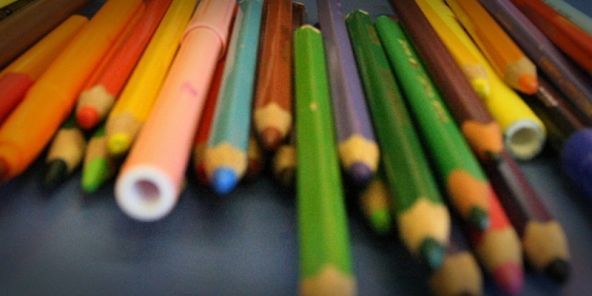Too many parents in Angus are holding their children back for an extra year in nursery before sending them to school.
That is the view of Angus Council’s chief executive Richard Stiff in a submission to the Scottish Parliament’s equal opportunities committee inquiry.
More parents in Scotland are following European countries, where children start school at about six years old. Some are concerned their child may be too young to start school and that their development might be harmed by transition at such a young age.
However, this is now being carefully monitored by Angus Council, which believes too many children defer entry to primary one.
Mr Stiff said: “There is ongoing self-evaluation/monitoring within services. For example, it has been noted in Angus that too many children defer entry to P1, remaining in nursery for an extra year.
“Over the last year this has been carefully monitored, and all reasons for deferral are analysed.
“Head teachers have been given clear guidance on more appropriate procedures and advice on equalities, for example, in circumstances of a child who cannot speak English this is not a good reason for staying in nursery.”
Many working parents are keen for their children to start school at the earliest opportunity as they can be struggling to meet the costs of childcare. Arrangements in Angus state a child must commence school on the first school entry date following her/his fifth birthday.
Children whose fifth birthday falls on or before the last day in February may begin to attend school from the previous August when they will be approximately four-and-a-half years old, or parents may delay their enrolment until the beginning of the next school session when their child will be approximately 5 years old.
Sue Palmer, a former head teacher, has written more than 250 books, TV programmes and software packages on literacy. She believes Scotland should adopt a ‘kindergarten stage’, based on the Nordic model, and the deferment of formal education until the age of seven.
Ms Palmer said: “All Scotland’s children deserve the opportunity to thrive at school. And up to the age of seven, they also deserve just to enjoy being children.
“In Scotland, children enter P1 at five, when most are far too young for formal education. After 10 years of research into child development, I believe it’s also a key reason why the UK is bottom of the league for childhood wellbeing in the developed world and steadily slipping down the international charts for achievement in literacy.
“The country that scores highest for wellbeing (the Netherlands) doesn’t send its children to school till they’re six. In two other high-scoring countries (Finland and Sweden), which also regularly top the charts for literacy, they don’t start ’til seven.”
Ms Palmer believes the best way to build a sound foundation for future learning is the traditional kindergarten diet of play, song, stories, art, drama and plenty of outdoor activity.
She added: “In a culture where childhood is under constant threat from a toxic cocktail of commercial and social factors, these parents want to ensure that at least in the precious early years their children have the chance to develop as learners naturally, without the downward pressure of tests and government targets for achievement.
“The Curriculum for Excellence is a very fine document that makes all the right noises about child development, but Scotland’s competitive target-driven culture means that, from the moment children enter primary one, they embark on an educational rat race.”
Ms Palmer also highlighted the link between children’s experiences in their early years and achievement and mental health throughout their lives.
